I spoke to an auditorium full of gifted high school kids Thursday morning.
It was a keynote for the Pittsburgh Technology Council STEM Summit. After my kickoff, they departed on buses to spend the day touring companies like Google and Duolingo.
For sure, it wasn’t my typical audience.
I wasn’t uneasy until I asked Noelle for advice the night before. She was mortified. “Dad, they’ll make fun of you no matter what.” I was strictly ordered to NOT try to be funny (“Please, no dad jokes!”) or to act cool (“Whatever you do, don’t try to relate to them!”).
Gulp. Telling jokes and relating to the audience is my whole schtick.
I decided making fun of myself was the best strategy, starting with a gratuitous Dick reference (“I’ve forgiven my parents for it”). Mercifully, it drew some audible laughs. I scored later with a certified dad joke: “As my good friend Mark Cuban once told me, nobody likes a name-dropper.”
I spent the rest of the time talking about some of my biggest professional mistakes – mostly borne of my hubris as a younger entrepreneur – and the lessons learned. I finished by saying how sorry I was for the mess we’ve handed them, but also how optimistic I was about their ability – as our best and brightest in science and tech – to fix it.
Not relating to them was easy. I wasn’t a math or science kid, nor would I have had the foresight to participate in an event like that – unless it was just to get out of school for a day. This whole generation is different.
Noelle is fully in the throes of college planning, which seems to have started by Googling “world’s most expensive colleges.” She’s been most keen on Northwestern and Vanderbilt. Then, she and Tara spent spring break visiting every aspirational school up the East Coast. My little Florida party school isn’t on the list.
But I didn’t work like she does. Her grades and SATs are in a different stratosphere than mine. She does diving, crew, and cello, all while working at an ice cream shop and carrying a couple babysitting gigs. I played golf and smoked pot.
Still, those schools she wants are a crapshoot, at best. We aren’t talking “safeties” yet. But, with girls applying to college at such a higher rate than boys – and based on the hundreds of kids I met this week – competition will be fierce.
The future is bright. Eventually.
Here’s what we’re seeing:
Consumer confidence dove this week. After a promising bounce, last time around, our Economic Sentiment Index had a disconcerting downturn. Big drops in confidence about the U.S. economy, personal financial health, and the job market all conspired to deliver the steepest two-week decline we’ve seen in over a year. Persistent inflation isn’t helping.
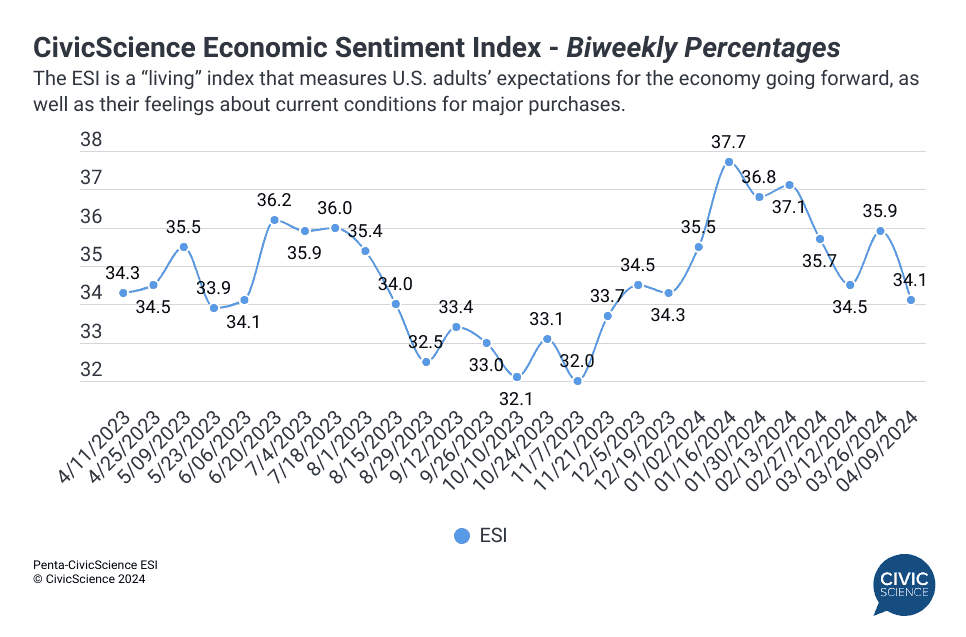
People are definitely shopping more strategically at the grocery store than they did a year ago. As Americans look for more and more ways to stretch their dollar, everything from buying private-label brands to using coupons is way up over this time in 2023. Interestingly (but explicably), usage of discount-hunting websites like Rakuten over-index among higher-income ($100k+) consumers. When it comes to store promotions, buy-one-get-one offers and free shipping reign supreme.
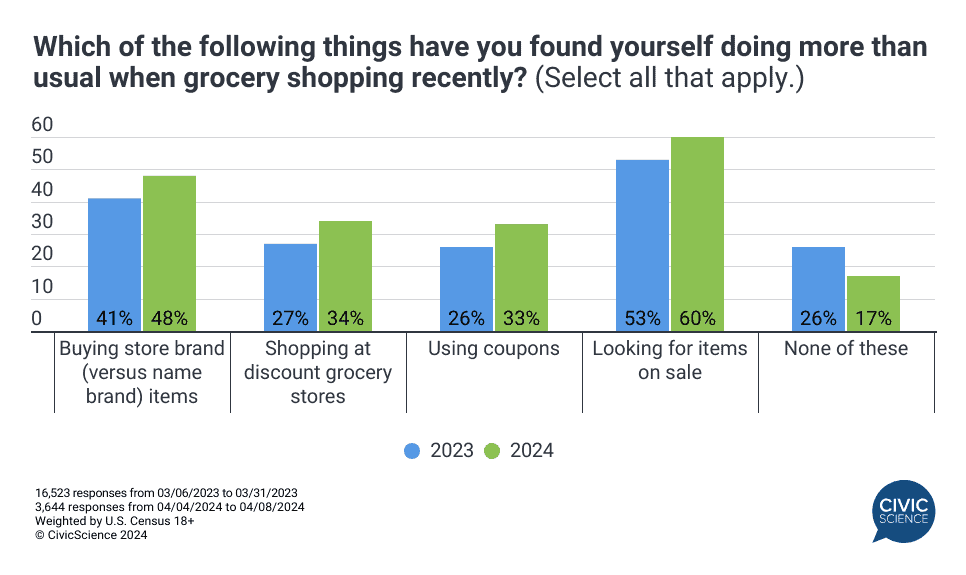
Support for labeling AI-generated content is widespread. In our 3 Things to Know this week, we looked at public support for pending bipartisan(!) legislation that would require digital watermarks on any AI-produced images, videos, or audio online. Support outpaced opposition by over 10 to 1. We also examined how people redirect their time when taking a break from social media (Gen Xers are the least likely to choose books). And speaking of books, we also found that physical versions still dominate in popularity over their digital or audio twins.
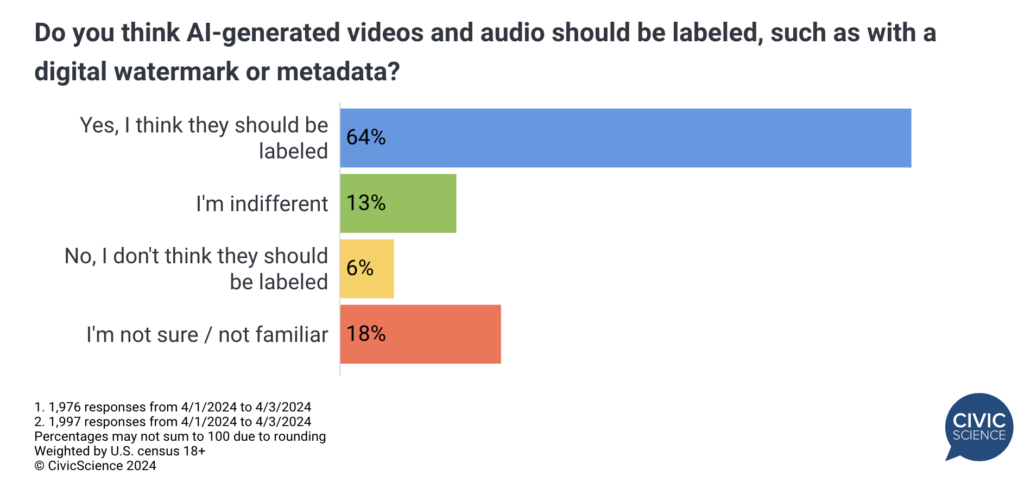
Gen Xers are increasingly turning to mobile games to alleviate stress. I don’t know if Wordle counts here, but I get it. The correlation between people who play mobile games every day and report high levels of stress is off the charts. My latchkey peers are much more likely to readily acknowledge that the games are a stress-reliever, while Boomers do it more to relieve or prevent boredom. Gen Z plays much more for competition and socialization reasons.
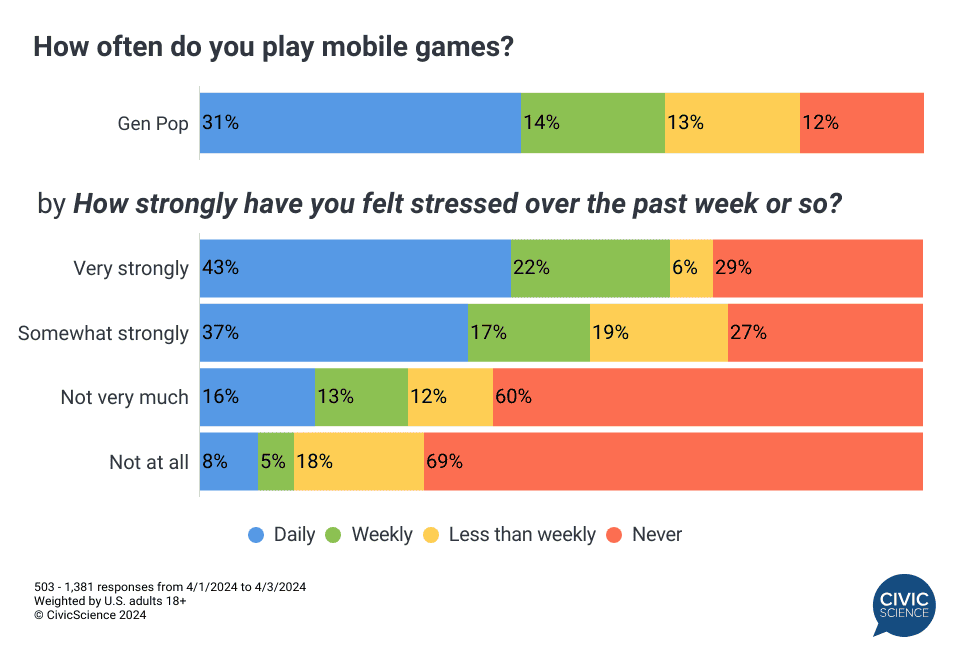
Using subtitles mustn’t have much to do with hearing loss. I was thrilled to see we did a study on this, as I’ve often wondered. Overall, Americans are pretty divided on subtitles, with 36% saying they always/mostly use them for TV and movies all the time and 40% saying “never.” The rest are in the “sometimes” category. The numbers are skewed heavily by age. A full majority (56%) of Gen Zs and younger Millennials are caption users, compared to only 19% of people aged 55+. Is it a function of habit or stigma?
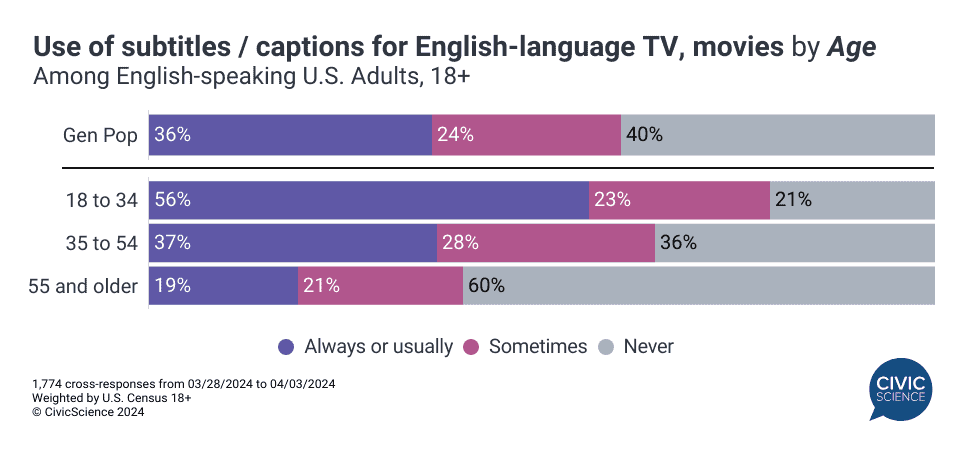
More awesomeness from the InsightStore™:
People owed more in taxes than they expected;
We looked at the consumers (and products) behind Ulta and Sephora’s spring sales events;
This year’s newlyweds will have fewer lavish weddings this year;
Online betting for the upcoming NHL Playoffs should grow in 2024.
The most popular questions this week:
How often do you entertain outdoors?
How do you feel about the Tesla Cybertruck?
Was the solar eclipse worth the hype?
How often do you check the weather forecast?
Are you good at keeping secrets?
Do you prefer to watch movies / television in complete darkness?
Answer Key: Almost every (summer) weekend; It’s hideous; Sure; Daily, sometimes more (see answer 1); I’ll never tell; Definitely.
Not on the list to receive this email? Sign up here. If you are new to this list, check out our Top Ten to get caught up.








